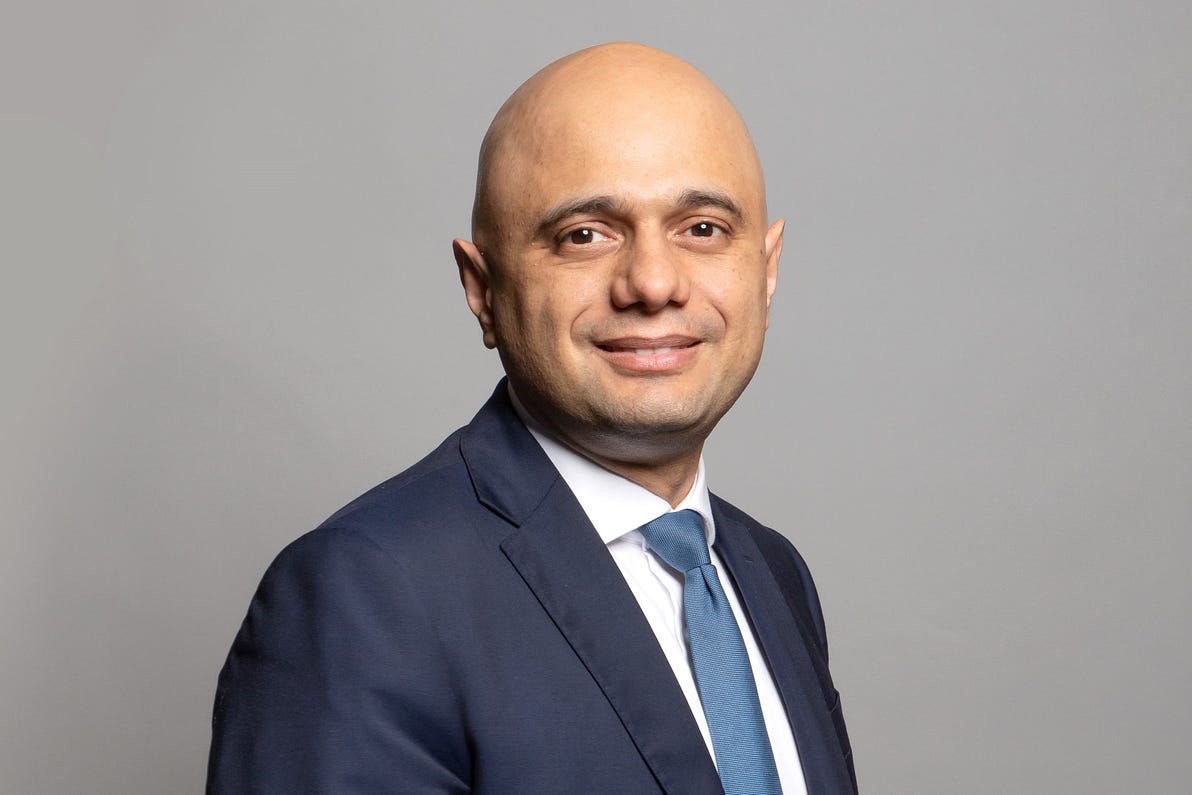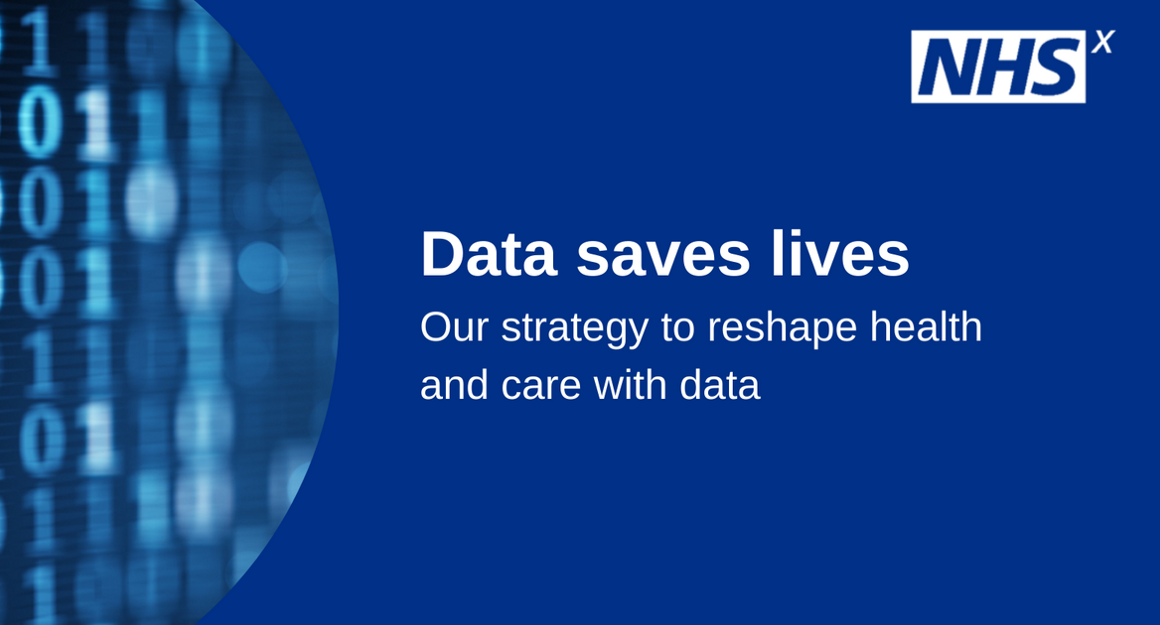Following a £200 million investment, trusted research environments (TREs) — a form of secure data environments would be established …
Healthcare IT News
Tammy Lovell
June 13, 2022
Patients in England will have greater access to GP records through the NHS App and power over how their data is used, following the launch of the new health in data strategy.
Data saves lives: reshaping health and social care with data, published by the Department of Health and Social Care (DHSC) today, contains commitments to simplify the opt-out processes for data sharing and improve access to GP records in the NHS App by November 2022.
Launching the strategy at London Tech Week’s HealthTech Summit, health secretary Sajid Javid announced that following a £200 million investment, trusted research environments (TREs) — a form of secure data environments would be established “to better enable researchers to securely access linked NHS data while maintaining the highest levels of privacy and security.”
… following a £200 million investment, trusted research environments (TREs) — a form of secure data environmentswould be established …
“to better enable researchers to securely access linked NHS data while maintaining the highest levels of privacy and security.”
He added that the public will be consulted on a new ‘data pact’, setting out how the healthcare system will use patient data.
…the public will be consulted on a new ‘data pact’, setting out how the healthcare system will use patient data.
Javid also announced £25 million for rapid digitisation of social care to meet the commitment for at least 80% of social care providers to have digitised care records in place by March 2024, closing the “digital divide” between the NHS and social care.
Javid also announced £25 million for rapid digitisation of social care to meet the commitment for at least 80% of social care providers to have digitised care records in place by March 2024 …
WHY IT MATTERS
Javid said TREs would enable the NHS to “deliver cutting-edge life-saving treatments and diagnosis to patients faster through clinical trials and facilitate more diverse and inclusive research to tackle entrenched health inequalities, which will in turn allow the NHS to work through the COVID-19 backlog at a faster pace.”
With an ambition for the NHS App to be a one-stop shop for health needs, the strategy commits to a target of 75% of the adult population to be registered to use the NHS App by March 2024.
THE LARGER CONTEXT
The strategy moves towards restoring public confidence in the use of health data, after a plan to share patients’ GP records with third parties was postponed indefinitely last year due to privacy fears.
The strategy moves towards restoring public confidence in the use of health data, after a plan to share patients’ GP records with third parties was postponed indefinitely last year due to privacy fears.
In his recent review into the use of health data for research and analysis, Professor Ben Goldacre, director of the Bennett Institute at the University of Oxford, recommended the use of TREs to mitigate risks and earn public trust.
In his recent review into the use of health data for research and analysis, Professor Ben Goldacre, director of the Bennett Institute at the University of Oxford, recommended the use of TREs to mitigate risks and earn public trust.
ON THE RECORD
Prof Goldacre said: “This is a momentous document, because it reaches beyond aphorisms and gets into crucial technical detail. The move to use TREs, in particular, is historic.
TREs earn public trust by provably protecting patients’ privacy and by sharing detailed transparent audits of all data usage.”
NHS Digital CEO Simon Bolton said: “Our TRE is already supporting life-saving clinical research and innovation, and we are working to deliver a new and improved national TRE service with improved accessibility, and the highest standards of privacy and security.”
Simon Madden, joint head of NHS transformation digital policy unit, said: “This data strategy commits to resetting the relationship with the public on the use of health and care data.”
Matthew Taylor, chief executive, NHS Confederation, said: “We welcome the ambition in this strategy for more adults to use the NHS App — this will help free up staff time and put more patients in control of their healthcare.
However, with more than one in 10 adults in the UK not owning a smartphone, we need to be mindful about the risk of widening health inequalities.”
Originally published at https://www.healthcareitnews.com on June 13, 2022.
Names mentioned
Professor Ben Goldacre, director of the Bennett Institute at the University of Oxford,
NHS Digital CEO Simon Bolton
Simon Madden, joint head of NHS transformation digital policy unit
Matthew Taylor, chief executive, NHS Confederation,
health secretary Sajid Javid
Dr Tim Ferris, National Director of Transformation, NHS England
ORIGINAL PUBLICATION (excerpt)

Ministerial foreword
The use of NHS data was at the forefront of this country’s fight against coronavirus (COVID-19), helping us to remove restrictions and return on the path to normal life.
Now that we are living with COVID-19, we must keep this momentum going, and apply it to the long-term challenges ahead of us, including tackling the COVID backlog and making the reforms that are vital to the future of health and care.
Earlier this year, I made a speech setting out my 4 priorities for reform in health:
- Prevention.
- Personalisation.
- Performance.
- People.
We cannot deliver the change that we need to see — and our 10-year plans for cancer, dementia and mental health — unless we embrace the digital revolution and the opportunities that data-driven technologies provide.
We cannot deliver the change that we need to see — and our 10-year plans for cancer, dementia and mental health — unless we embrace the digital revolution and the opportunities that data-driven technologies provide.
There is so much more to do if we are to make the NHS and social care more data driven, and reassure people that their data will be handled safely and ethically.
This strategy shows how we will use data to bring benefits to all parts of health and social care — from patients and care users to staff on the frontline and pioneers driving the most cutting-edge research.
It is backed by a series of concrete commitments, including:
- investing in secure data environments to power life-saving research and treatments
- using technology to allow staff to spend more quality time with patients
- giving people better access to their own data through shared care records and the NHS App
This is on top of the huge investment that we have already made — for instance, investing £200 million in our Data for Research and Development programme.
Last year, we published this strategy in draft so we could gather views from far and wide. I’d like to thank the hundreds of people and organisations who shared their views, which were invaluable in shaping this final product.
I’d also like to thank Professor Ben Goldacre for his work on the review of how we could make better, safer use of health data for research and analysis (known as the Goldacre review), which was published in April, and made a compelling case for how data can drive innovation and improve healthcare.
I fully support his recommendations and this strategy shows how we are already taking them forward.
The title of this strategy says it all: data saves lives. If we put this plan into action, and unlock the incredible power that data possesses, we can bring the future forward, and make us all healthier and safer.
– The Rt Hon Sajid Javid MP, Secretary of State for Health and Social Care

NHS England Transformation Director foreword
The future of the NHS depends on improving how we use data for 4 related purposes:
- For the direct care of individuals.
- To improve population health through the proactive targeting of services.
- For the planning and improvement of services.
- For the research and innovation that will power new medical treatments.
Data helped power the NHS through the pandemic. The NHS Datastore has helped us get ventilators sent to where they are most needed, data helped us recruit 46,000 patients into the RECOVERY trial to test treatments for COVID-19, and data allowed the sharing of advanced care plans with ambulance and A&E staff to enable more complete assessment, safer care and speedier discharge.
Better use of data will be critical to the new integrated care systems. They will be responsible in their local areas for:
- improving population health and care
- tackling unequal outcomes and access
- enhancing productivity and value for money
- supporting broader social and economic development
All of this will require good quality data and data systems to underpin effective working across multiple local organisations.
The NHS Long Term Plan sets out our aspiration to make digitally enabled care mainstream across the NHS, and this strategy — along with What Good Looks Like, Who Pays for What and the Unified Tech Fund — provides the guidance and support integrated care systems need to make this a reality.
At a national level, the merger of NHS Digital and NHS England and NHS Improvement (NHSEI) will allow us to make the most of NHS data while maintaining safeguards so the public and staff have confidence that data is safe and being used appropriately.
The joining of these NHS bodies will also improve co-operation and provide the strong national leadership that is needed to support the recovery of NHS services, address waiting list backlogs, and support hardworking staff, all while driving forwards an ambitious agenda of digital transformation and progress.
All of us within the NHS are dedicating ourselves to bringing the benefits of data to the service of better care, improved outcomes, and more efficient services.
– Dr Tim Ferris, National Director of Transformation, NHS England
Contents
NHS England Transformation Director foreword
- 1.Improving trust in the health and care system’s use of data
- 2.Giving health and care professionals the information they need to provide the best possible care
- 3.Improving data for adult social care
- 4.Supporting local and national decision-makers with data
- 5.Empowering researchers with the data they need to develop life-changing treatments, diagnostics, models of care and insights
- 6.Working with partners to develop innovations that improve health and care
- 7.Developing the right technical infrastructure
- How you can get involved
- Annex A: legislative changes
- Annex B: list of commitments
- Annex C: organisations who provided feedback on the draft strategy
- Annex D: recommendations of the Goldacre review
- Annex E: glossary
Originally published at https://www.gov.uk
RELATED ARTICLES












